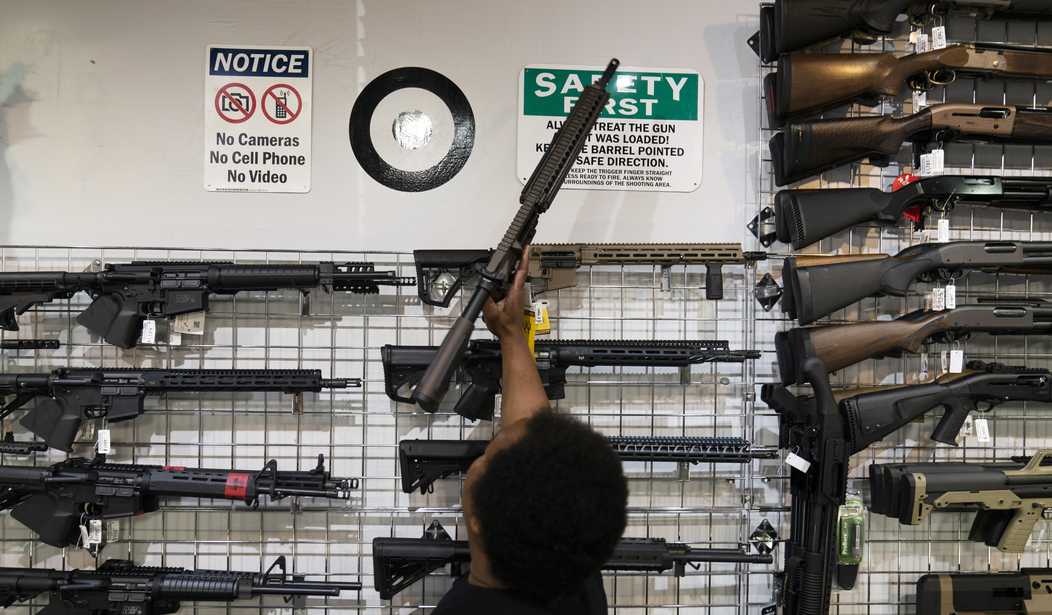Delaware's ban on so-called assault weapons and "large capacity" magazines can continue to be enforced while the prohibitions are challenged in federal court, according to a decision by the Third Circuit Court of Appeals handed down on Monday.
In writing for the three-judge panel, Judge Stephanos Bibas took no position on the merits of the argument presented by the attorneys for the Delaware State Sportsmen’s Association and the Bridgeville Rifle & Pistol Club that the law violates the Second Amendment's text and tradition. Instead, Bibas and the other panelists ruled that the plaintiffs had not shown evidence of irreparable harm if the law continues to be enforced.
The challengers focus on the merits. If they are right on those, they argue, they should get an injunction because all constitutional harm is supposedly irreparable and the equities and public interest track the merits. But that is not how equity works. Preliminary injunctions are not automatic. Rather, tradition and precedent have long reserved them for extraordinary situations. We see nothing extraordinary here.
There's nothing extraordinary in prohibiting the sale of some of the most common and popular arms in the country? That's an astonishing statement, especially coming from a judge who previously dissented from the Third Circuit's denial of an injunction against New Jersey's ban on ammunition magazines that can hold more than ten rounds. In that decision Bibas wrote that he would have granted an injunction until "until New Jersey provides real evidence to satisfy its burden of proving the Act constitutional."
In that 2018 dissent, Bibas, who was appointed to the Third Circuit by then-President Donald Trump in 2017, never mentioned the irreparable harm, or lack thereof, from New Jersey's magazine ban. Instead, he focused on the tiered interest test the Third Circuit used to keep the magazine ban in place.
The Second Amendment is an equal part of the Bill ofRights. We must treat the right to keep and bear arms like otherenumerated rights, as the Supreme Court insisted in Heller. We may not water it down and balance it away based on our own sense of wise policy. 554 U.S. at 634-35.
Yet the majority treats the Second Amendment differently in two ways. First, it weighs the merits of the case to pick a tier of scrutiny. That puts the cart before the horse. For all other rights, we pick a tier of scrutiny based only on whether the law impairs the core right. The Second Amendment’s core is the right to keep weapons for defending oneself and one’s family in one’s home. The majority agrees that this is the core. So whenever a law impairs that core right, we should apply stricts crutiny, period. That is the case here.
Second, though the majority purports to use intermediate scrutiny, it actually recreates the rational-basis test forbidden by Heller. It suggests that this record favors the government, but make no mistake—that is not what the District Court found. The majority repeatedly relies on evidence that the District Court did not rely on and expert testimony that the District Court said was “of little help.” 2018 WL 4688345, at *8. It effectively flips the burden of proof onto the challengers, treating both contested evidence and the lack of evidence as conclusively favoring the government. Whether strict or intermediate scrutiny applies, we should require real evidence that the law furthers the government’s aim and is tailored to that aim. But at key points, the majority substitutes anecdotes and armchair reasoning for the concrete proof that we demand for heightened scrutiny anywhere else.
I realize that these two cases relied on different arguments, but I'm still having a hard time wrapping my head around Bibas' contrary conclusions in the New Jersey and Delaware lawsuits. If New Jersey failed to win the merits argument six years ago, at least in Bibas' mind, then why did he choose to disregard the merits argument raised by the plaintiffs in Delaware? It's decidedly odd that Bibas would have granted an injunction based on a strict scrutiny evaluation of New Jersey's magazine ban, but didn't even take the text and tradition of the Second Amendment into account when deciding to uphold Delaware's gun and magazine ban.
It's pretty apparent that the Supreme Court isn't interested in granting cert to any interlocutory appeals when the Second Amendment is involved, so Delaware's ban is almost certain to remain in place at least until the case is decided by the district court judge (who, incidentally, also refused to grant an injunction). Bibas's previous skepticism about a magazine ban will hopefully come into play when the Third Circuit eventually hears the appeal of the Delaware case on the merits, but his past unease is little comfort to the Delaware residents who, for the time being, are unable to lawfully purchase wildly popular semi-automatic rifles and magazines that can hold more than 17 rounds.









